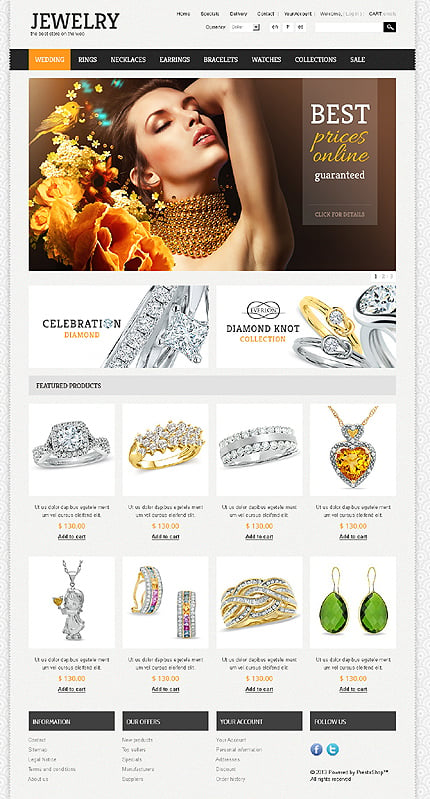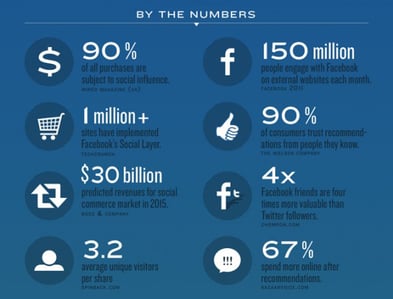
How to Start an Online Religious Jewelry Store

Creating an online jewelry store is a fantastic way to help your jewelry creations reach a national, even global audience. Whether you're a serious artisan, or the owner of a religious jewelry store, it's important to build a solid foundation upon which your jewelry store can grow.
1. Prepare your line for sale with competitive pricing, professional photography and detailed descriptions.
Perhaps one of the most important elements of starting an online religious jewelry store is being adequately prepared before you begin. An online jewelry store launch is an extremely labor intensive process that requires a large push at the very beginning to build momentum. Before you even begin considering marketing, you need to have a solid product line that is accurately priced and well presented.
Online jewelry stores span that gamut from high-end artisan work to low-end imported goods. Your decisions will often be based on your profit margins. If you have large profit margins, you can devote a certain amount of time to each product you offer. If you have smaller profit margins on each individual piece, you need to concentrate on streamlining and volume.
Photography is where many online businesses fail at the very beginning. Each item needs to be professionally photographed and accurately described. To get a good, professional picture you may want to invest in the following supplies or hire a photographer.
• A good digital camera, not a smartphone or tablet.
• A tabletop lighting box; an empty, white box filled with a cloth that diffuses lighting.
• A tripod, in order to steady your shots.
• A set of tabletop lighting equipment.
This setup provides the classic, professional jewelry photograph: A photograph that shows your jewelry on a pure white backdrop without any distractions.
2. Building your e-commerce platform from the ground up.
When choosing an e-commerce platform, you have many options. These options usually range from beginner stores to very advanced marketplaces. Some are completely free, while others charge per month. The option you choose will be largely based on your own budget and your goals for your store. When deciding upon an e-commerce platform, you shouldn't just consider your current needs but your goals for the business long-term. Switching between e-commerce platforms can be difficult.
Shopify is one of the major e-commerce content management systems and has some incredible benefits. The entire system is hosted via Shopify, so you don't need to find a separate hosting provider. There are templates for stores that are easy to customize, mobile-friendly and offer additional features such as a store blog and marketing analytics. Shopify has a tiered pricing structure based on your needs, and ranges from $29 to $179 a month.
Magento is an open source e-commerce CMS that has a large support community and may be the best option for a shop owner who wants to retain full control over their online store. Open source software is free to use and to modify. If you want to install Magento, all you need to do is purchase a web hosting account and upload Magento to your server. Like Shopify, Magento has free and premium templates for store owners who don't want to have to design their own store.
There are some other, more basic ways to sell jewelry online. Many individuals have successfully opened stores on Etsy, eBay, ArtFire, eCrater and Bonanza.
3. Advertising your products through Paid advertising, content marketing and social media.
Once you have your e-commerce portal setup properly, it's time for advertising. The online jewelry store industry is somewhat saturated, and you'll need to be consistent with your marketing campaigns to see growth.
 Today, a solid marketing campaign involves three major aspects: Paid advertising, content marketing and social media. Paid advertising, where you can pay per click or per thousand impressions, is implemented through venues such as Google and Bing. This form of advertising is flexible with your budget.
Today, a solid marketing campaign involves three major aspects: Paid advertising, content marketing and social media. Paid advertising, where you can pay per click or per thousand impressions, is implemented through venues such as Google and Bing. This form of advertising is flexible with your budget.
Content marketing involves posting content (usually in the form of a blog) to your store's site in order to bring in visitors. The content that you post shouldn't contain marketing or promotional material, just valuable information that will bring people who are interested in your niche.
Finally, social marketing is an incredibly valuable asset to anyone who wants to create an online store. You should create dedicated social media accounts in networks such as Facebook and Pinterest and keep it updated regularly. You should also integrate it with your e-commerce portal.
4. Taking care of business: finances, taxation and merchant accounts.
The actual business side of running an online jewelry store online cannot be neglected. When running an online store, you need a merchant account to receive payments. Third party tools such as Google Wallet and PayPal can be used only to a certain extent. A merchant is a credit card processor that will take payments on your behalf and then distribute them to you. Learn more about online merchat accounts in this blog.
Apart from actually collecting payments, you also need to manage your finances and pay taxes on a regular basis. The amount of taxation that you face is based heavily on where you live, so inquiring with a local Certified Public Accounting firm is usually a good idea to ensure that you're doing everything that you should and that you don't get surprised by a hefty tax bill at the end.
In conclusion, opening up an online jewelry store requires some planning and work before launching. Taking the time to build a solid foundation will save you time and money in the long run.



